- Home
- Seanan McGuire
Were- Page 19
Were- Read online
Page 19
Rika ran onto the bridge and swung her baton at Nixon’s head. But the crook managed to turn at the last minute. She clipped Jack’s arm instead, breaking his hold on Nixon’s neck. He jabbed an elbow at Jack’s knees. Jack shifted and jumped clear.
Nixon reclaimed his baton. Rika danced away.
“I got this,” she yelled. “Stop the priest.”
Jack wanted to argue, but she was wearing a crazy, black-lipped grin filled with sharp canine teeth. Her powers were back. Warmth flooded his chest. Nixon deserved this.
Kennedy cowered against the display case. He’d pushed the damaged mask past his forehead, revealing a pasty, middle-aged baby face drenched in sweat. His lips moved rapidly, but the alarms drowned out the words. His left hand clutched the winking golden scarf to his shoulder. His right hand quivered on the handle of the tiara case as he stared at the brown and white cat stalking, lion-like, toward him.
Jack swaggered just enough.
Kennedy bolted. He was too tall to notice the ‘possum slop or the small body in his path. His left shoe skidded on the muck. The toe of his right hooked under the opossum. He fell across the aisle. His head cracked against a stone pedestal at the far right corner of the bridge.
Jack glanced at Rika. Her chest heaved, but her perspiring face glittered like the golden scarf. She hefted two shock batons. Nixon lay face-down on the walkway.
Jack hurried down the aisle and bent over Gene. The opossum’s condition appeared no better or worse than before.
Kennedy was still breathing. There was a goose egg growing on his forehead but not a lot of blood. Jack double-checked the pedestal to make sure he wasn’t missing anything important, like more blood. The doll-sized bronze statue of a bearded guy seated atop the pedestal peered back at him. The statue winked.
Jack shifted reflexively. It was a mistake. All his bruises, sprains and the adrenalin crash of too much shifting caught up with him at once. He braced his arms to either side of a brass plaque identifying the statue as Saint Peter, the first pope, and eyeballed the saint’s shiny nose.
Despite the ear-numbing yammering of the alarms, he sensed her approach, knew the instant she stood behind him. He shook his head at his own foolishness.
He said, “This church is winking at me.”
“You’re delusional. It’s part of your charm.”
“Only part?” he asked the statue.
“Yeah.”
He glanced over his shoulder. She was staring at him, her gaze traveling the length of his body, so intent it could have been a caress. Part of him was grateful all she could see was his back. An increasingly insistent part of him damned annoyed. Her lips curved in a mischievous smile. Light flared in her eyes.
It flared in the south end of the basilica, blazed over the bridge, and poured over the hall in front of the underground sanctuary as well. Jack blinked, dazzled.
“Oh no,” Rika moaned, “the cavalry.”
“Isn’t that a good thing?”
“Not when you’re naked.” She shoved her backpack into his arms. “I’ll stall them as long as I can.”
He tore into the bag. She’d folded everything. This was why he should never get involved with an over-achiever. Why couldn’t she just stuff everything on top like a normal college student? Then he wouldn’t have to dig to China to find his jeans. He yanked them over his hips.
He heard her shouting in the distance, her voice pitched so he could hear what he needed. “They tried to steal the tiara!”
She’d balled his socks! At least they weren’t rammed in his shoes. He shoved his feet into his sneakers.
“They tied us up!”
He’d tie them later.
“I had a nail clipper!”
Crap. He forgot his shorts. Forget it. Where the hell were his shirts? Wait—that flash of cardinal red. He wrestled his sweatshirt from the pouch. His t-shirt sailed across the aisle.
“Then the alarm went off and they started fighting.”
He jerked his sweatshirt over his head. Pulled it over his jeans.
“I don’t know why. We were in the Crypt Church. We couldn’t hear anything. We didn’t come out ‘til we saw the lights.”
He hadn’t noticed before, but the alarms had faded to blips. He heard the opossum gasp. He bundled his were-roommate in his t-shirt and held him protectively.
Two Metropolitan Police officers in riot vests mounted the stairs at the east end of the bridge, guns drawn. Jack braced himself, praying his blue eyes would count for more than his brown skin and kinky hair.
The lead cop halted a foot shy of Gene’s muck. She was tall, gray-haired and built like a Valkyrie. Her right hand lowered the gun. Her left arm swept to the side, wordlessly commanding her colleagues, Rika, and the Shrine guards bringing up the rear to stay back.
Hoping it was true people responded better if called by name, he glanced at her nametag. It read “Pinckey”. He gaped. Pinckey? Pinckey and “the Braen”? Really? What next? Would they try and take over the world?
‘Possum Gene Braen sneezed, spraying the officer’s boots. The good news was if he was sneezing he was probably going to be okay. The bad news was she was a cop, a cop who now had were-snot on her boots.
Her face puckered. “Jesus, kid, what are you doing with that rat?”
* * *
Jack was still pondering her question an hour after dawn when Officer Pinckey booted him, Rika, and Gene out an inconspicuous door on the west side of the Shrine with the warning: “Stay away from the east parking lot. Every kid and their cell phone is there.”
He’d worry about his answer later. Right now, easing the sleepy, t-shirt-draped opossum onto the lawn without dropping him was almost more than Jack could manage.
Rika dragged her backpack to the low wall overlooking the west terrace of the basilica. She sat on the wall and stared numbly at the trees across Harewood Avenue.
Chilled and aching, he slumped beside her. “I can’t believe I have a math test in three hours,” he groaned. “Why the hell did the cops have to ask everything six times? Six fucking times! You don’t think they believed Kennedy about me turning into a cat?”
Rika started to shake. He had a sudden, horrific flashback to the moment in the church when he realized she couldn’t shift.
Teary-eyed, she grabbed his hand. Her features twisted in misery. “You could’ve been killed, and it’s all my fault.” Her voice wobbled into a sob. “I just wanted to see you. I thought we could have fun. Fun!”
She wanted to see him? She wanted to see him. Him!
He folded her into his arms. Somewhere in the sobbing and the patting, the small fists clinging to his shirt and the small perfect body wriggling against his chest, she raised her damp face to his, and he kissed her. The knell of doom pealed inside his head, ringing through every warning, caveat, and dire prophecy in the young single man’s lexicon. His lower brain didn’t care. She kissed back like the world would end if they stopped. This was why he was screwed.
Their lungs demanded air, but their bodies refused to part. Foreheads touching, they shared each other’s breath.
Something rustled in the grass behind the wall. An opossum’s scream deepened into a man’s heartfelt groan. Gene sat up. His stricken gaze bounced from the grass to the church to Jack and Rika sitting together on the wall, and finally to his lap. He emitted a tiny, high-pitched shriek. He snatched Jack’s t-shirt off the grass. T-shirt pressed to his junk, he stumbled to his feet and raced north toward their dorm.
Rika’s gaze never strayed from Jack’s face.
This was why he didn’t care. She was the star around which his world revolved. He threaded his fingers through her silky hair and kissed her again.
WITNESS REPORT
Katharine Kerr
Yes, I will tell you how it was then. The worst of it was the way the Nazis deprived me of sleep. Before they threw me in the cell, they stripped me naked. Just beyond the steel bars of the door, the guards walked by during the day, peered
in, and made coarse comments about me, a young woman, shivering and naked, just beyond their reach. Who could sleep then?
At night they threw me a blanket, but they shone strong lights into my tiny cell. At intervals, they marched up and down the corridor outside and beat on a drum or sang. I had no bed. I would lie curled up on my one stinking blanket in a corner of the cell and try to sleep while their cracked ugly voices rang out with the Horst Wessel Song or some other Nazi abomination. If I did manage to snatch a few hours sleep, guards would fling open the door, and an interrogator would march in. He was a jolly-looking little man with a round face and thick glasses that made it hard to read his eyes.
The questions were always the same and my answers as well.
“You are a werewolf, yes?”
“No.” I was telling the truth, of course. “I am not a werewolf.”
“You’re lying. Tell us the truth. We wish to know how you change.”
Silence.
“Tell us.” A slap on the face.
Silence.
A raised hand – but no slap.
“Why will you not tell us? Tell us, and you go free.”
Silence.
A shrug, a sneer, and he would leave again.
They dared not torture me, you see. They knew enough to know that if they damaged my body, I would never be able to demonstrate the change. Some prisoners might have taken comfort in this. I was hoping they would kill me. Although I knew that the war had started to go badly for my once-loved Germany, maybe the Nazis would manage to fight back and drive the Allies away. Escape? With all those men going back and forth just outside? Even in the dead of night I heard them. For all I knew, I would be a prisoner in that cell for years.
And never have a decent sleep again. When you are not allowed to sleep, your mind begins to splinter. You go beyond the state we call “being exhausted”—far far beyond. If an insect flew into my cell, I felt rage and slapped it dead. There were always plenty of flies. The smell of my own excrement—my only toilet was a bucket in the corner—made me weep. I longed to pick up the bucket and hurl its contents at the guards, but I couldn’t bear to touch the filthy thing. I swore and raged and felt only more tired than before. I wanted to pace back and forth, but my quivering legs refused to let me.
I could no longer remember how long they had kept me in the cell. I could barely remember my arrest. Fragments of memory would rise up, images of our village, of the grain fields all around where we worked, the women and children, prisoners of the Army’s need for food to fight a war that had taken all our men. I could see Frau Schnabel’s terrified face, half-toothless, her chin dotted with white hairs, as she wept at my arrest. She was the informer, she was the one who’d lied, who had sacrificed me to save her own grandchildren.
Could I have told the truth? Tell the soldiers: no, not me, then point to them, the nine year old daughter, the even younger boy—I could not bear to hand them over to the human fiends who raided our village. In the cell, my hatred of the SS lent me life. So many reasons! They shot our village priest for hiding two Jewish babies, then clubbed the infants to death rather than “waste bullets on them”. Oh, that memory kept my hatred burning hot enough! Every time the interrogator marched in, every time I saw the little silver death’s heads on his thread-bare black uniform, I remembered what he wanted and how I would rather die than give it to him. Would our village children have been able to lie, treated as I was?
At times, when I chewed my daily lump of black bread or drank the bowl of boiled meat and water they gave me now and then, I would remember eating before the war, the roast pork my mother made with the warm potato salad, the fat chickens, and noodles in gravy. At moments I would weep, remembering, but when I did, the guards would laugh and jeer. I soon learned to smother the grief. At times a rat would scuttle across the floor. I longed to change and leap upon it, rend its hide and feast upon its flesh. Instead I screamed in pretend fear. Let the guards laugh! Better that than they see what they wanted to see.
Why? I asked that question of myself many times a day. Why did they want to know? Why not just root us all out, burn us, kill us with silver weapons as so many others had done down the long centuries? The day came when I found out.
The first hint came from the guards, as they stood gossiping in the corridor. All of these men could no longer fight. Anyone strong enough had long since been sent to the front. Still, they talked about the war. They knew little, only that it went badly. But one warm day, when the spring sun cast stripes of light through my little barred window, they began to talk about despair and revenge.
“Revenge!” the sergeant would say. He would wave the stump where his left hand used to be. “Useless, when you’re dead.”
“Who’s to say we’ll be dead?” the boy—barely fourteen he was—would remark. “We could slip away into the forest.”
“How can you believe in those stupid superstitions?” The sergeant rolled his eyes.
“But Goebbels said on the radio—”
“As if that makes it true! Do you have shit for brains?”
The other two would shrug and fall silent.
Not long after, the sergeant mentioned that an important man was on his way, an officer of high rank, a personal friend of Goebbels himself—or so some said. The old man insisted that this mysterious officer only knew Obergruppenführer Prützmann—whoever he was. I knew nothing about high ranking officers, but I could guess that this one had something to do with my imprisonment.
Sure enough, after a blurred space of days and nights—maybe three days, maybe four, I could not tell—two men strode down the corridor and stood in front of the door to my cell. One I recognized as the officer who had arrested me, a middle-aged, swag-bellied gray thing with a moustache stained with food. The other stood tall in his black uniform, youngish, good-looking in a blond, bland way. He set his hands on hips and looked me over, turned his head, looked over the cell, the walls, turned and looked up and down the corridor, and then swung around to face the gray, fat man.
“This will not do!” His voice was low, tight, a snarl. “Do you want to kill the prisoner? How can she teach us what we need to know if she’s sick and miserable?”
The gray man stammered a few words. The officer turned to the guards and began to bark orders. They scurried before him like the cell rats. Soon I had clothing—coarse brown stuff, yes, but warm skirts, shirts, shoes. After I dressed, he opened the door and gestured for me to come out. I took three steps and nearly fell. He swore and picked me up. By then I was so thin that he could carry me down the corridor to another cell, this one with a bunk, a proper toilet, a sink. He set me down on the bunk, then turned and ordered the guards to bring me food.
“Not too much! She’s been starved.” He looked my way. “Small meals, but a lot of them.” He smiled. “Once you’re stronger, we’ll talk.”
His smile had all the warmth of a melting icicle. I nearly laughed. Muddled and sick and splintered as I was, I could see through his ruse, the false concern, the smile. I was supposed to like him, I realized, supposed to see him as my savior, if only I would give him the information he wanted. He wanted me to trust him, to cling to his promises, and then he would throw me aside once he had the truth.
“My name is Wülf,” he said and showed strong white teeth with his smile. “Think of it as an omen.”
I stared at him and let my mouth sag open.
“Just rest,” he said. “I can see you’re too exhausted to talk.”
He left the cell, but lingered outside for a moment. “By the way,” he said, “the man who’s been questioning you? He’s going to be shot. For mistreatment of Aryan prisoners.”
That did please me, but I hid my pleasure from him.
For the next few days I slept and ate. How I slept! Long blissful hours of it, both during the day and all night, wrapped in warm, clean blankets. They brought me decent food, small amounts, but many times during the day. I was surprised they could find so much good food afte
r the long winter of near-starvation we’d all suffered, those of us who farmed and sweated and went hungry so the armies could eat. When I was awake, I planned how I would act, just what I might do in response to the opening gambits that Wülf might make.
Because of course, the day came when he opened the door of my cell and walked in. I was sitting at one end of my bunk. He sat at the other and smiled his icicle smile.
“You know what we need to know,” he said.
“Oh yes.”
“What I’m wondering is why you won’t tell us.”
“Would you have told that man anything?”
“Of course not. Very well. What about telling me?”
“What I’m wondering,” I copied his words deliberately, “is why you want to know.”
Wülf mugged comic surprise. “Didn’t he tell you?”
“No, he didn’t.” As you know damn well, I thought to myself.
“I see.” Wülf nodded and arranged a look of sympathy on his face. “Let me be honest. We’re losing the war. The Russians are nearly to Berlin. The Führer has shut himself up somewhere.” His expression turned to honest grief. “There’s no hope. We’re going to be defeated.” He paused to swallow heavily, to take a few deep breaths and choke back tears. “All we have left is revenge.”
That word again, revenge. I began to suspect an ugly truth.
“We’ll fight to the end, kill as many of them as we can,” Wülf continued. “But they’ll take the Homeland. Some of us want to plant bombs, traps, anything we can to make them pay high for it.”
“And how many of our people will stumble onto those traps by mistake?”
He winced in another honest gesture. “That’s very true. And the rest of us see that. Some of us have to survive to lead the resistance. Otherwise, as you say, who knows who’ll take the damage?”

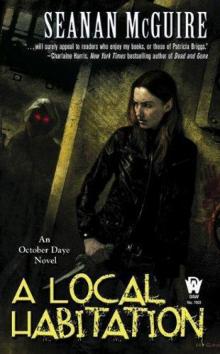 A Local Habitation
A Local Habitation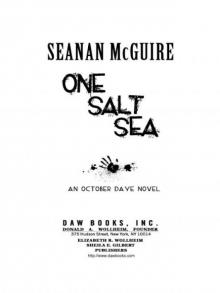 One Salt Sea
One Salt Sea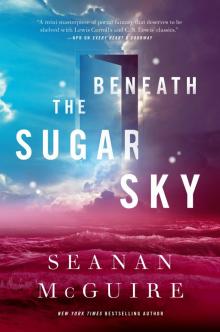 Beneath the Sugar Sky
Beneath the Sugar Sky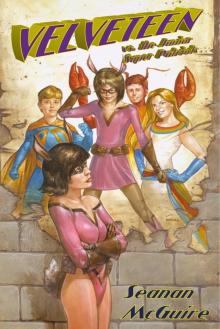 Velveteen vs. The Junior Super Patriots
Velveteen vs. The Junior Super Patriots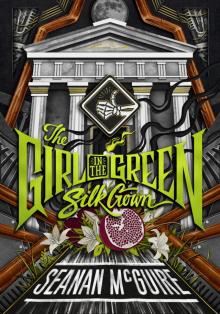 The Girl in the Green Silk Gown
The Girl in the Green Silk Gown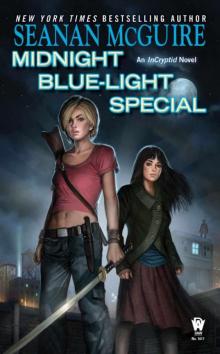 Midnight Blue-Light Special
Midnight Blue-Light Special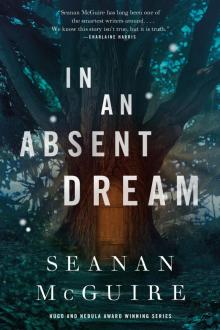 In an Absent Dream
In an Absent Dream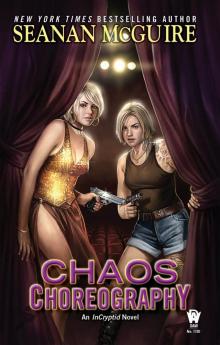 Chaos Choreography
Chaos Choreography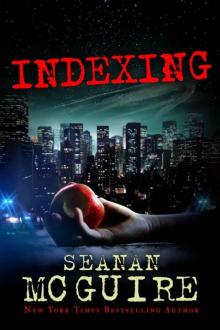 Indexing
Indexing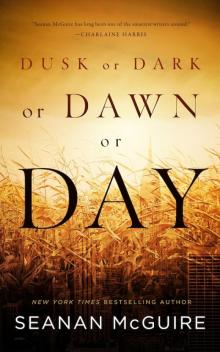 Dusk or Dark or Dawn or Day
Dusk or Dark or Dawn or Day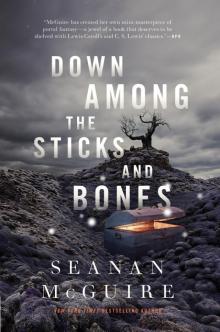 Down Among the Sticks and Bones
Down Among the Sticks and Bones The Razor's Edge
The Razor's Edge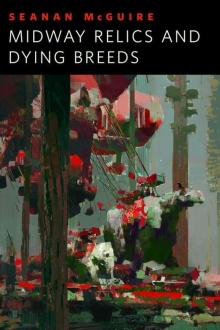 Midway Relics and Dying Breeds
Midway Relics and Dying Breeds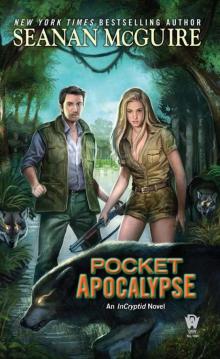 Pocket Apocalypse
Pocket Apocalypse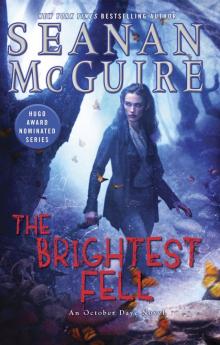 The Brightest Fell
The Brightest Fell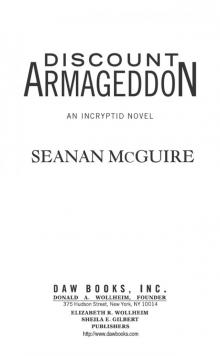 Discount Armageddon
Discount Armageddon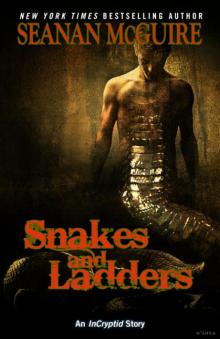 Snakes and Ladders
Snakes and Ladders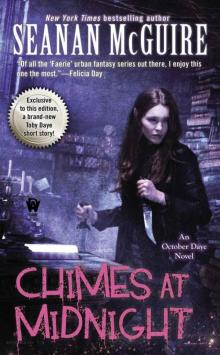 Chimes at Midnight
Chimes at Midnight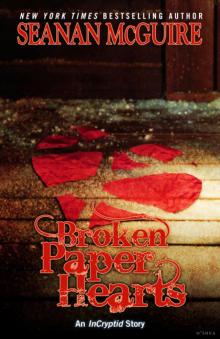 Broken Paper Hearts
Broken Paper Hearts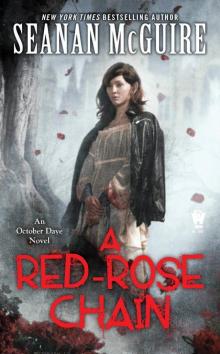 A Red-Rose Chain
A Red-Rose Chain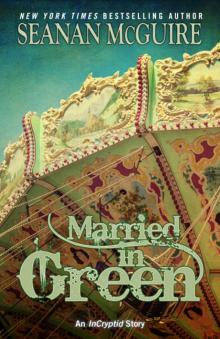 Married in Green
Married in Green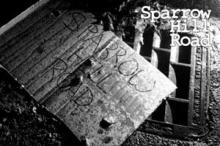 Sparrow Hill Road 2010 By Seanan
Sparrow Hill Road 2010 By Seanan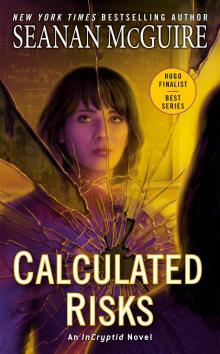 Calculated Risks
Calculated Risks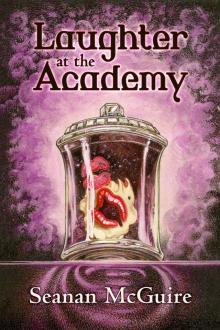 Laughter at the Academy
Laughter at the Academy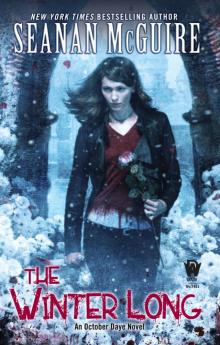 The Winter Long
The Winter Long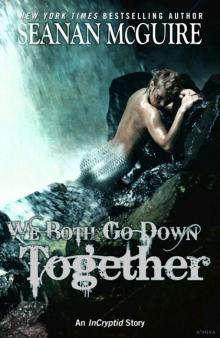 We Both Go Down Together
We Both Go Down Together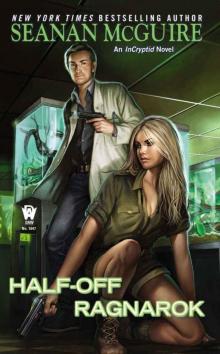 Half-Off Ragnarok
Half-Off Ragnarok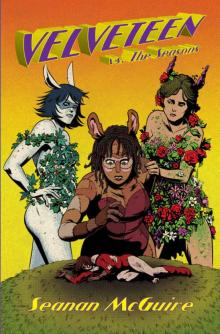 Velveteen vs. The Seasons
Velveteen vs. The Seasons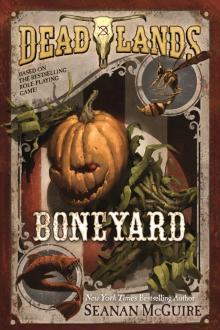 Boneyard
Boneyard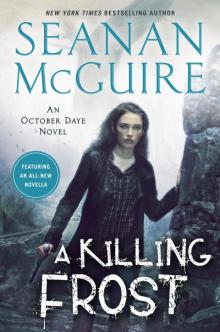 A Killing Frost
A Killing Frost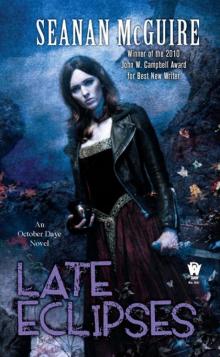 Late Eclipses
Late Eclipses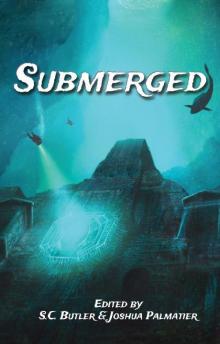 Submerged
Submerged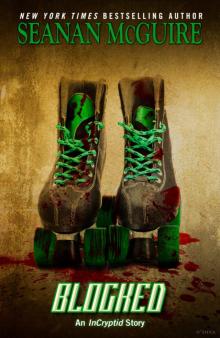 Blocked
Blocked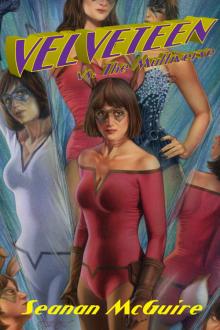 Velveteen vs. The Multiverse
Velveteen vs. The Multiverse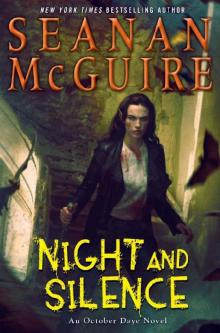 Night and Silence
Night and Silence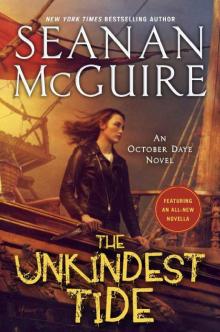 The Unkindest Tide (October Daye)
The Unkindest Tide (October Daye)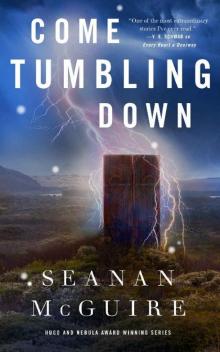 Come Tumbling Down (Wayward Children)
Come Tumbling Down (Wayward Children)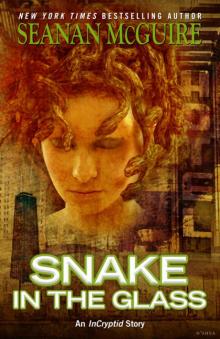 Snake in the Glass
Snake in the Glass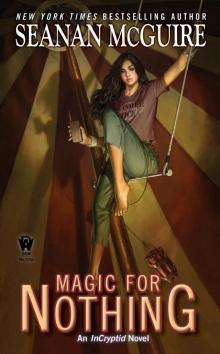 Magic for Nothing
Magic for Nothing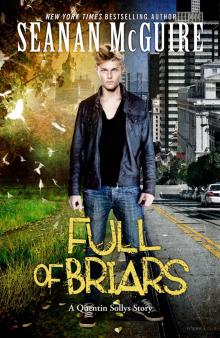 Full of Briars
Full of Briars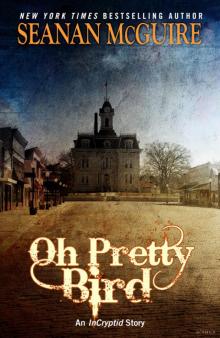 Oh Pretty Bird
Oh Pretty Bird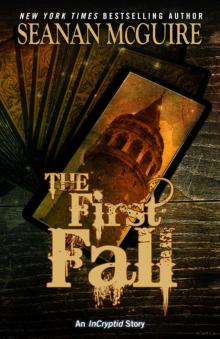 The First Fall
The First Fall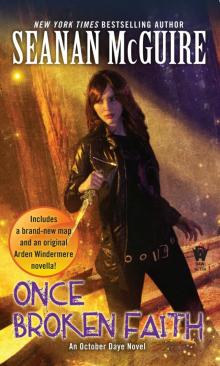 Once Broken Faith
Once Broken Faith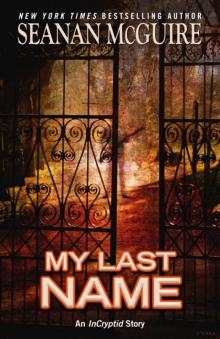 My Last Name
My Last Name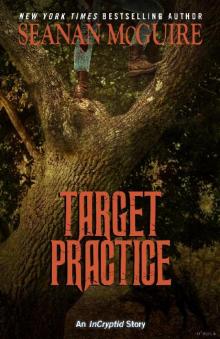 Target Practice
Target Practice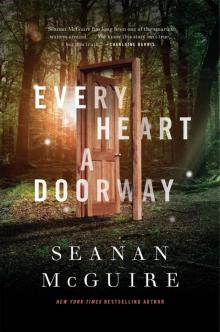 Wayward Children 01 - Every Heart a Doorway
Wayward Children 01 - Every Heart a Doorway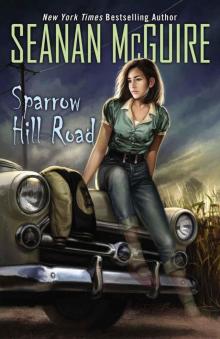 Sparrow Hill Road
Sparrow Hill Road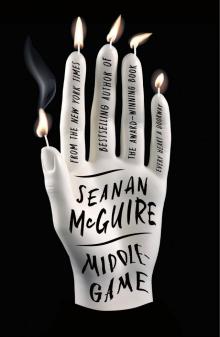 Middlegame
Middlegame Juice Like Wounds
Juice Like Wounds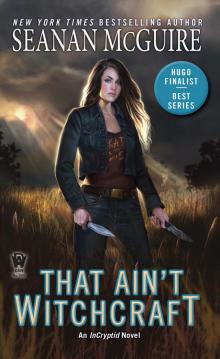 That Ain't Witchcraft
That Ain't Witchcraft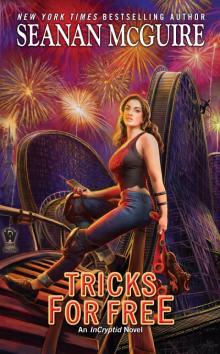 Tricks for Free
Tricks for Free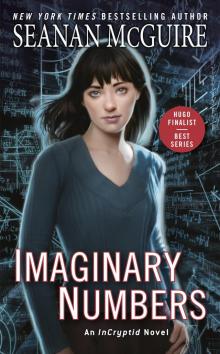 Imaginary Numbers
Imaginary Numbers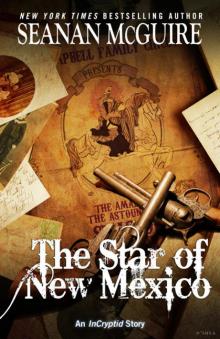 The Star of New Mexico
The Star of New Mexico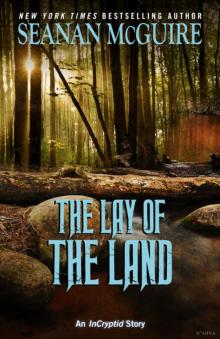 Lay of the Land
Lay of the Land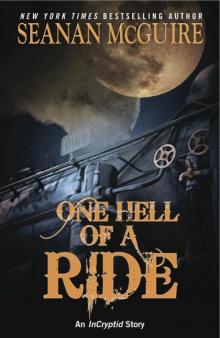 One Hell of a Ride
One Hell of a Ride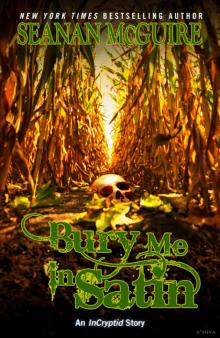 Bury Me in Satin
Bury Me in Satin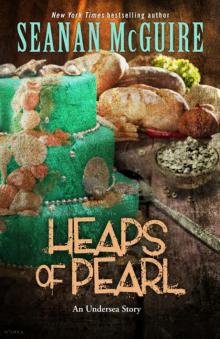 Heaps of Pearl
Heaps of Pearl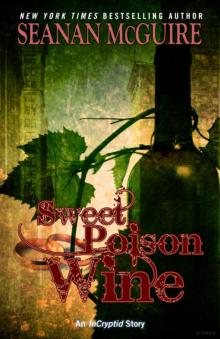 Sweet Poison Wine
Sweet Poison Wine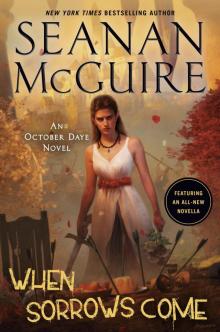 When Sorrows Come
When Sorrows Come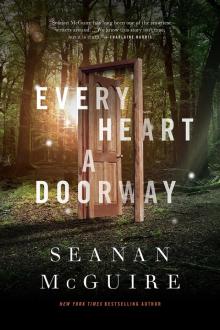 Every Heart a Doorway
Every Heart a Doorway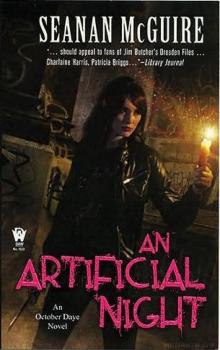 An Artificial Night - BK 3
An Artificial Night - BK 3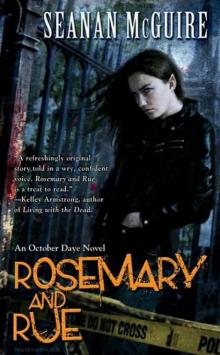 Rosemary and Rue
Rosemary and Rue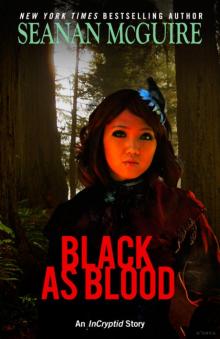 Black as Blood
Black as Blood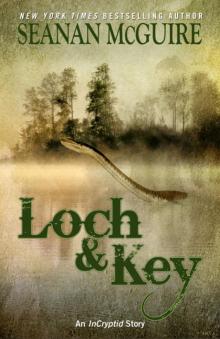 Loch and Key
Loch and Key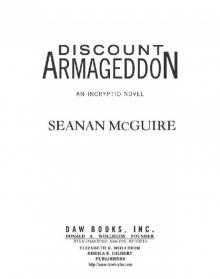 Discount Armageddon: An Incryptid Novel
Discount Armageddon: An Incryptid Novel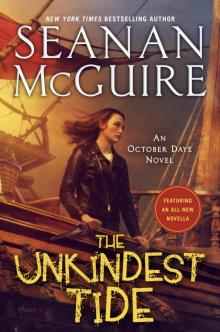 The Unkindest Tide
The Unkindest Tide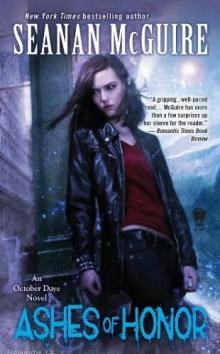 Ashes of Honor od-6
Ashes of Honor od-6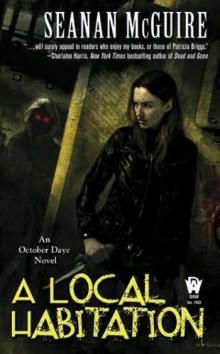 A Local Habitation od-2
A Local Habitation od-2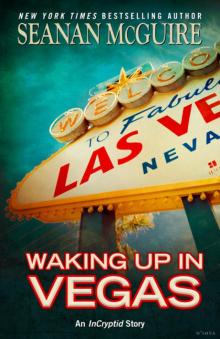 Waking Up in Vegas
Waking Up in Vegas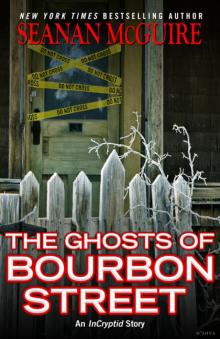 The Ghosts of Bourbon Street
The Ghosts of Bourbon Street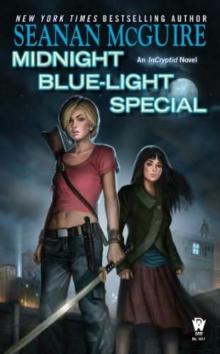 Midnight Blue-Light Special i-2
Midnight Blue-Light Special i-2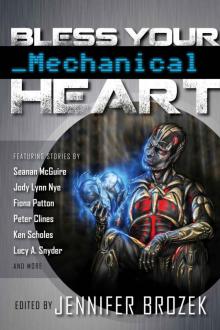 Bless Your Mechanical Heart
Bless Your Mechanical Heart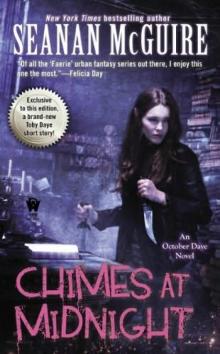 Chimes at Midnight od-7
Chimes at Midnight od-7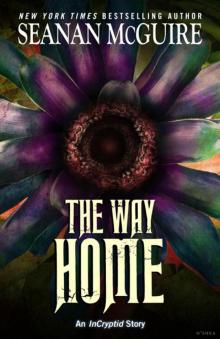 The Way Home
The Way Home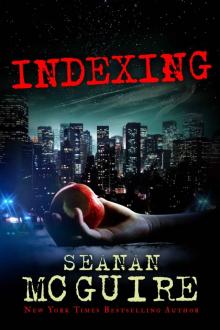 Indexing (Kindle Serial)
Indexing (Kindle Serial)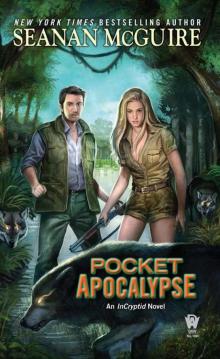 Pocket Apocalypse: InCryptid, Book Four
Pocket Apocalypse: InCryptid, Book Four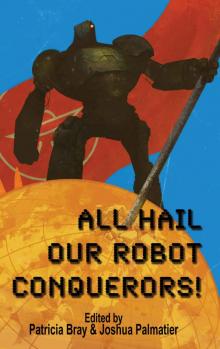 All Hail Our Robot Conquerors!
All Hail Our Robot Conquerors!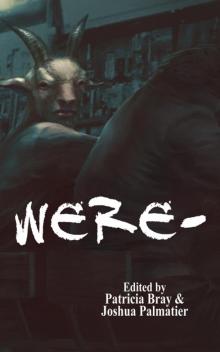 Were-
Were-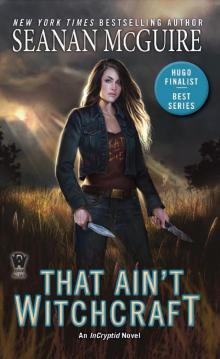 That Ain't Witchcraft (InCryptid #8)
That Ain't Witchcraft (InCryptid #8)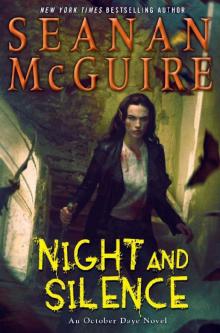 Night and Silence (October Daye)
Night and Silence (October Daye)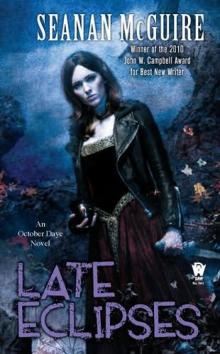 Late Eclipses od-4
Late Eclipses od-4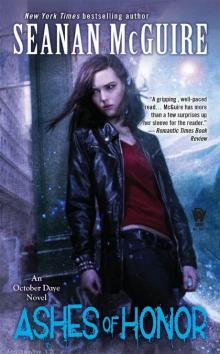 Ashes of Honor: An October Daye Novel
Ashes of Honor: An October Daye Novel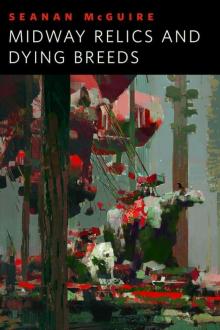 Midway Relics and Dying Breeds: A Tor.Com Original
Midway Relics and Dying Breeds: A Tor.Com Original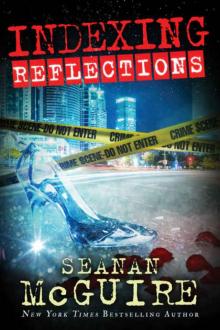 Indexing: Reflections (Kindle Serials) (Indexing Series Book 2)
Indexing: Reflections (Kindle Serials) (Indexing Series Book 2)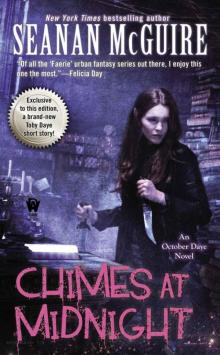 Chimes at Midnight: An October Daye Novel
Chimes at Midnight: An October Daye Novel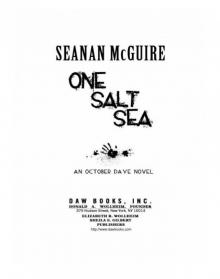 One Salt Sea: An October Daye Novel
One Salt Sea: An October Daye Novel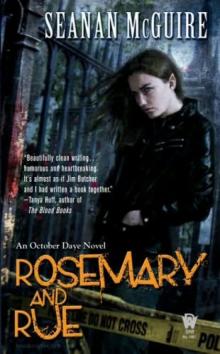 Rosemary and Rue od-1
Rosemary and Rue od-1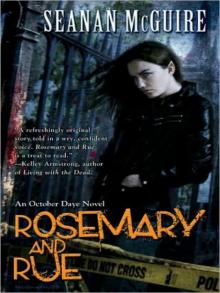 Rosemary and Rue: An October Daye Novel
Rosemary and Rue: An October Daye Novel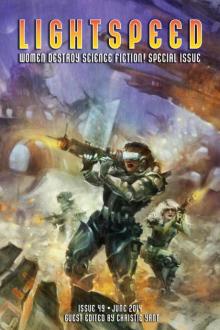 Lightspeed Magazine Issue 49
Lightspeed Magazine Issue 49 Alien Artifacts
Alien Artifacts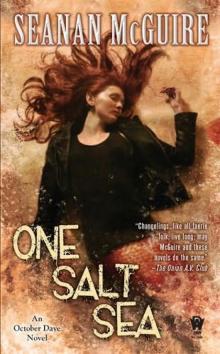 One Salt Sea od-5
One Salt Sea od-5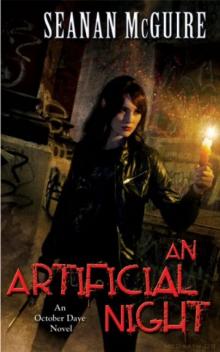 An Artificial Night od-3
An Artificial Night od-3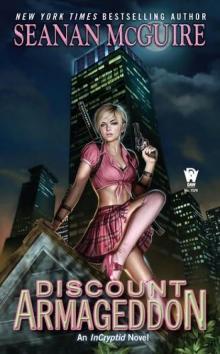 Discount Armageddon i-1
Discount Armageddon i-1